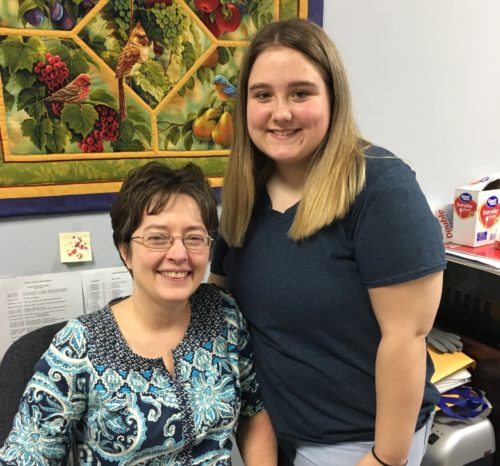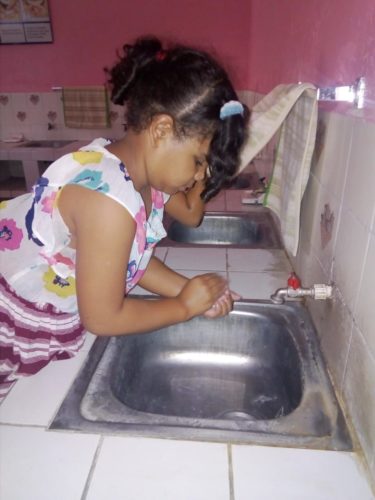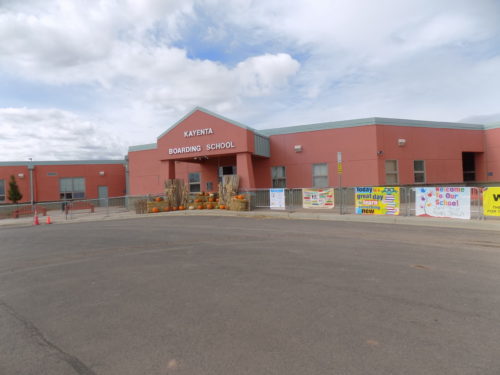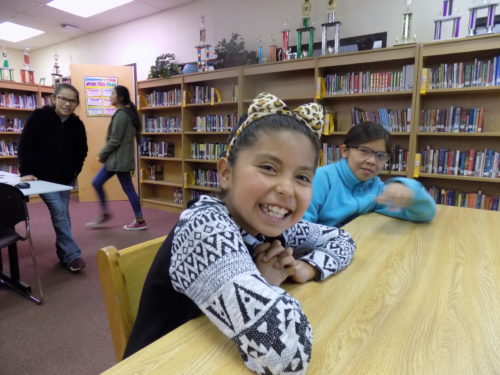Each and every day, we receive photos from our volunteer coordinators as they continue to provide for children in our sponsorship program. These coordinators ensure that children have access to basic needs, including food and educational assistance, throughout the COVID-19 crisis. We are incredibly grateful for these amazing individuals as they work tirelessly to make sure that your contributions are supporting some of the most vulnerable children in the world.
Today, we would like to share a heartfelt message from our President and CEO, Ronald H. Carter, who writes to you, our sponsors and donors, about the struggles this pandemic presents for our organization and the children we serve around the world.
Although the updates we receive offer hope, we still have our concerns for the future. Today, we would like to share a heartfelt message from our President and CEO, Ronald H. Carter, who writes to you, our sponsors and donors, about the struggles this pandemic presents for our organization and the children we serve around the world.
A message from Mr. Carter
Dear Friend,
As I sit here in our mostly deserted Children Incorporated building, my spirit is heavy. I, like most everyone else these days, am deeply concerned about the spread of COVID-19 and the devastation the virus is having on our society and world.
On a personal level, I am concerned about my family and loved ones, co-workers, friends, and so many others who are at risk of infection.
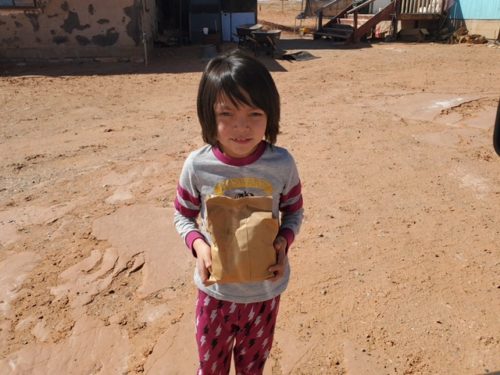
Our volunteer coordinators are personally delivering food to children during the COVID-19 outbreak.
On a professional level, I am beginning to see the financial fall-out the coronavirus is causing for those who regularly support the work of this organization that I love, and I admit that I am fearful for how Children Incorporated will be able to continue to meet the needs of the children and families we serve. As sponsors and donors cease or lessen their giving, we must scramble to find funds to provide for the children who depend on us for food, clothing, medical assistance, and so much more.
When times are hard and people begin to lose their jobs, and as they watch their investment incomes sink to record lows, charitable giving is often the first thing they cut from their budgets. Tragically, this is the time when the children we serve most need the help of their sponsors and of those who donate so generously to our organization.
I am hoping and praying that you will stick with us as we go through this crisis, and that even if you are personally affected by it, you will be able to find it in your heart to remember the children whose lives we change together on a daily basis. If you are struggling and are unsure where your next sponsorship contribution will come from, talk to us. Perhaps we can find a way to keep you involved until the pandemic passes.
Together, we can initiate positive change in our world, starting with the children who are our future, the same children who need our support today.
A way to help beyond sponsorship
If you want to do something to help the children now, we offer you the opportunity to contribute to our COVID-19 Response Fund. Money raised for this purpose will provide food and help meet the immediate and most pressing needs of children in both the United States and abroad at perhaps one of the most difficult times of their young lives. We, and they, definitely need your help. If you are able to support this effort, we ask you to consider making a contribution today.
As I said at the start of this letter, my spirit is heavy as I witness the suffering of so many in our world, yet I am blessed with an optimistic attitude, and I look forward to much brighter days. As people, we may seem divided in some ways, yet underneath it all, we are all connected, and together we are strong. Together, we can initiate positive change in our world, starting with the children who are our future, the same children who need our support today.
Thank you for allowing me to share my heart.
Sincerely,
Ronald H. Carter
***
How can I donate to the COVID-19 Response Fund?
We have created a COVID-19 Response Fund so that we can support children in crisis in the upcoming months. Donations will be used to provide food and emergency supplies to the children in our program who are in immediate need.

